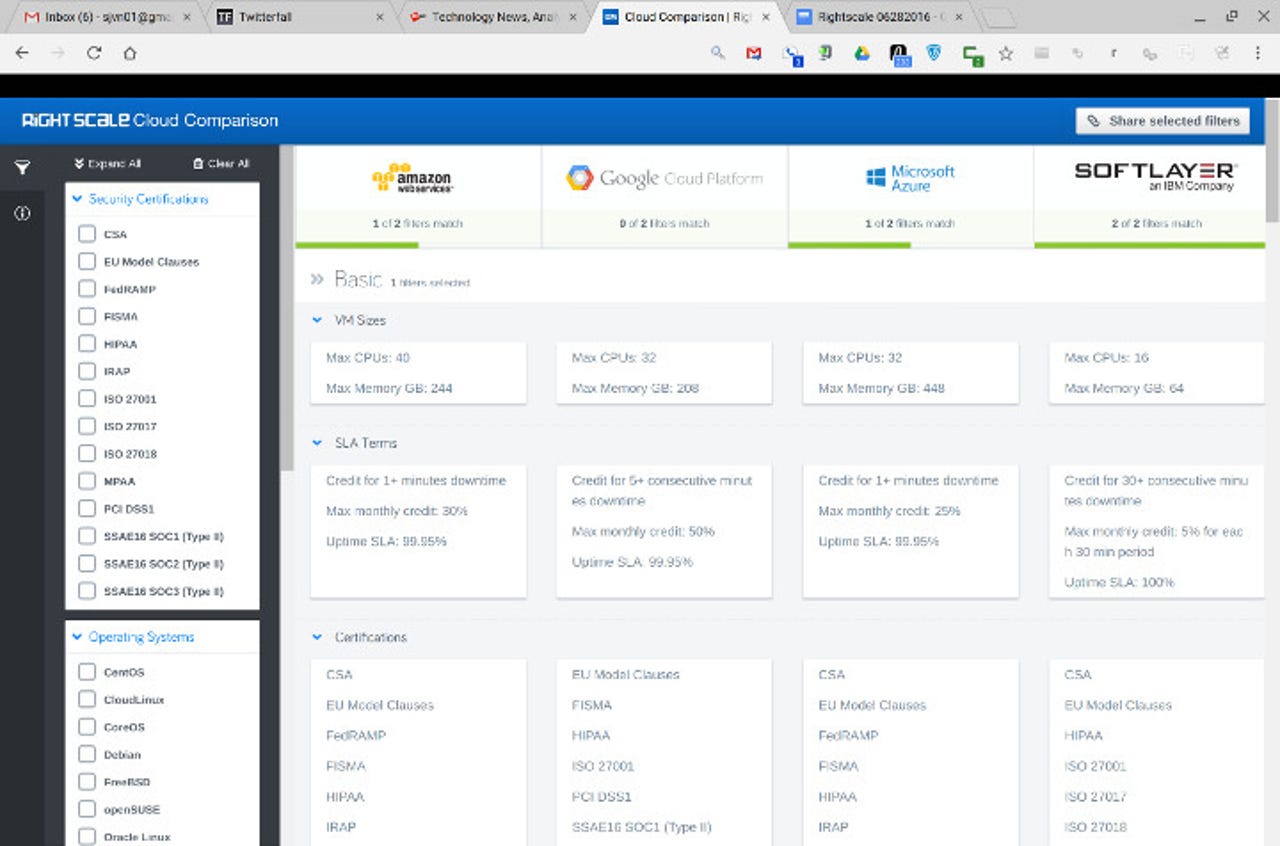RightScale can help you pick out the right public cloud

Choosing the right public cloud is not an easy job. RightScale, with its RightScale Cloud Comparison tool, can help.

RightScale's public RightScale Cloud Comparison tool makes a CIO or IT manager's job much easier.
RightScale's tool compares the big four public cloud providers: Amazon Web Services (AWS), Microsoft Azure, Google Compute Engine, and IBM's SoftLayer. It enables you to compare and contrast basic cloud options such as virtual machine size, service level agreements (SLA), region support, and operating system support.
For example, let's say you need a local cloud in Australia. With the tool, you'll see that Google can't help you while the others can. Or, for instance say you've tied your business to Oracle and you want Oracle Linux as your operating system. The program will quickly and easily tell you that AWS and Azure are the clouds for you.
RightScale also lets you look deep into what services each one provides. This includes what relational database management systems (DBMS) are offered, types of compute service, and network services. So, if your company uses PostgreSQL DBMS, AWS is the only major cloud service that comes ready to support it.
special feature
RightScale also tracks security certifications. If, for example, you're hosting media for customers, you want Motion Picture Association of America (MPAA) Content Security support. Which, by the by, both AWS and Azure support. If, on the other hand, you need ISO 27017 information security control, you can choose between AWS and SoftLayer.
The system makes it very easy to pick and choose exactly what mix of certifications, options, and services you're looking for. It's not perfect, however.
First, it only covers the big cloud four. There's no mention of say Oracle Cloud or Rackspace's Managed Cloud.
It also doesn't contain any data about which cloud supports what container technology. Since containers are becoming the way to deploy and run server applications on clouds, this is not a small omission.
In addition, it doesn't cover costs at all. But, considering how variable cloud costs can be, that's understandable. Still, some kind of tool to measure costs would be handy. For pricing, you'll need to turn to Cloudorado with its Cloud Computing Comparison Engine.
Even used together, these tools leave much to be desired. The simple truth is there no easy way to pick out just the right cloud for your business.
The only way to really know which cloud will work for you is to run pilot programs on each one and see which one fits you the best. That said, both programs will at least get you started and keep you from going down a dead end.
Related Stories: